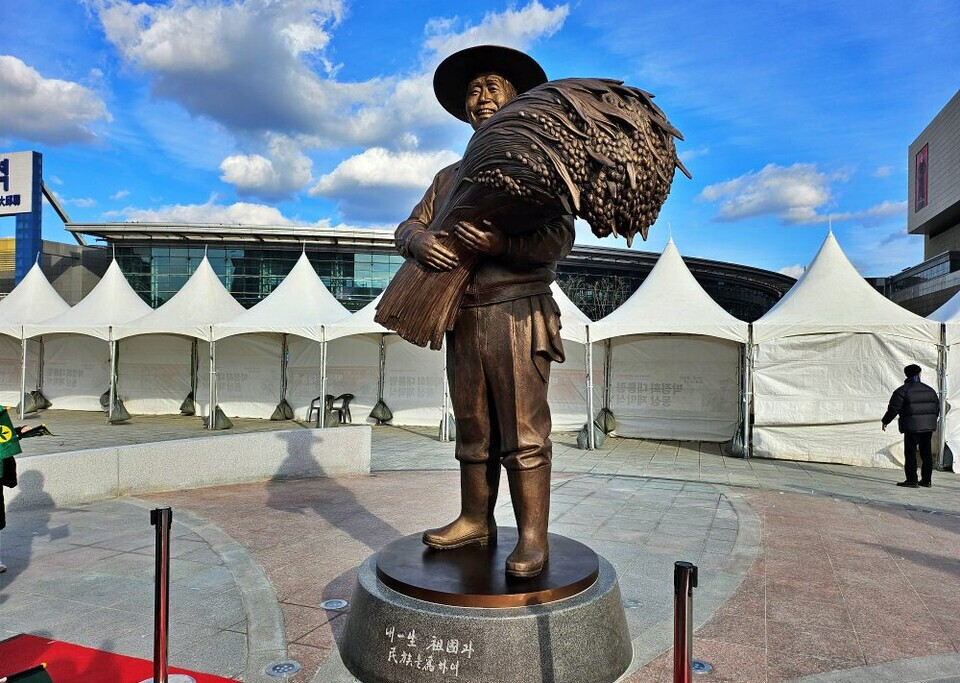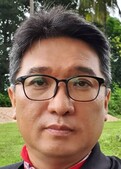
DAEGU, South Korea – A significant number of Daegu citizens are actively pursuing the repeal of an ordinance that supports memorial projects for former President Park Chung-hee, marking a notable instance of direct public engagement in local governance. The Daegu City Council announced on May 20th that it plans to formally introduce a motion to abolish the "Ordinance on Memorial Projects for President Park Chung-hee" by May 28th. This action follows a successful citizen-led petition, which garnered over 14,000 signatures.
The push for repeal stems from a groundswell of opposition to the ordinance, which was enacted in May of last year and subsequently led to the controversial erection of a Park Chung-hee statue at Dongdaegu Station. The statue, unveiled on December 24th of last year under the leadership of former Daegu Mayor Hong Joon-pyo, has been a focal point of contention. Critics argue that Park Chung-hee, a figure synonymous with authoritarian rule and military coups, is not an appropriate individual for a local government to commemorate.
Citizen-Led Initiative Gains Momentum
The "Pan-Citizen Movement Headquarters to Oppose the Glorification of Park Chung-hee," a coalition of local civic and social organizations, spearheaded the petition drive. They launched a city-wide signature campaign in January, successfully collecting 14,485 valid signatures, exceeding the required 13,670 signatures (1/150 of Daegu's eligible voting population aged 18 and over) mandated by the local autonomy act for resident-initiated ordinances. This achievement underscores the growing power of resident-initiated ordinances in South Korea, a system that allows citizens to directly propose, amend, or repeal local regulations.
The Road Ahead: Legislative Scrutiny and Public Discourse
While the city council's upcoming introduction of a motion is a crucial step, it does not guarantee the ordinance's immediate repeal. The proposed abolition bill must first undergo review by the relevant standing committee, the Planning and Administration Committee, and then be put to a final vote in a plenary session of the city council. According to related laws, a decision on the bill must be made within one year.
The Pan-Citizen Movement Headquarters is urging the city council to hold public hearings and open forums before deliberating and voting on the repeal. They emphasize that the original ordinance was enacted without adequate public consultation, despite significant public opposition. "Former Mayor Hong Joon-pyo asserted that the city council itself was a public forum, disregarding public opinion, and the Daegu City Council pushed through the vote despite some members' criticisms that 'submitting to the council is a specious argument for public discussion,'" the movement stated in a press release. "This time must be different. The Daegu City Council must hold public hearings and other forums for public discourse before the June deliberation and vote."
They also highlighted the rarity of such citizen-initiated legislative action in Daegu's history. This marks only the second time in 34 years that a citizen-initiated ordinance has progressed to deliberation and vote, with the previous instance being the "Environmentally Friendly Mandatory School Meals Ordinance" in 2012. The movement urged the current 9th City Council not to repeat past mistakes, where the previous council reportedly disregarded the right of petitioners to speak and significantly altered the proposed ordinance.
Potential Implications of Repeal
If the ordinance is successfully repealed, it would have significant consequences. The Park Chung-hee Memorial Project Promotion Committee would lose its legal basis, effectively dissolving. Furthermore, plans for an additional Park Chung-hee statue at the Daegu Representative Library, which had been temporarily suspended, would be scrapped. This proposed statue was envisioned to be a substantial monument, standing 6 meters tall with a 2-meter pedestal, and estimated to cost 700 million won.
Kang Geum-soo, Secretary-General of the Daegu Participation Solidarity, expressed hope that the Daegu City Council would not disregard citizens' voices as the former mayor did. "Clearing the legacy of internal strife is a contemporary issue. It makes no sense for a statue of Park Chung-hee, who was the originator of internal strife, to stand at the gateway to Daegu," Kang asserted. This sentiment reflects a broader societal debate in South Korea regarding the legacy of its authoritarian past and how it should be publicly remembered.
The upcoming deliberation by the Daegu City Council will be a crucial test of its commitment to democratic principles and public engagement. The outcome will not only determine the fate of the Park Chung-hee memorial projects but also set a precedent for the role of citizen participation in local governance in Daegu.
[Copyright (c) Global Economic Times. All Rights Reserved.]






























